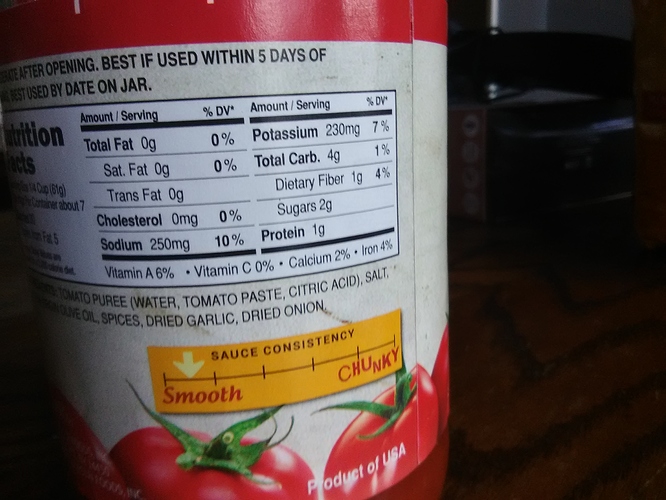I’ve been following the keto diet for a few days now for a few days and trying to understand a phrase I hear; “net” carbs? What is that and how do I calculate it?
Also, I’ve been trying to find an app that will help me calculate how many grams of this or that. But I don’t know how to guess how many grams are in the handful of blueberries I ate or that spoonful of cauliflower I just ate. Some of the apps seem to assume I know what my BMI is and all sorts of stuff. Can anyone recommend a simple to understand and use app?
Thanks.
What are "net" carbs?
OK. Take the total carbs listed on the nutrition label and subtract the fiber amount.
Here is an example.
Total carbs are 4g
Dietary fiber is 1g
So 4 minus 1 = 3 net carbs
Yes, that easy. The body doesn’t metabolize fiber so it doesn’t affect anything.
For “net carbs”, three things to be concerned about:
- Fiber. Most forms are not digestible, so they can generally be subtracted out.
- Sugar alcohols. These vary in digestibility. Some, like erythritol, can be subtracted out completely. Others, like Xylitol and Maltitol, still have over 2 calories per gram, so should really only be half-subtracted.
- Allulose. It’s a sugar, but has nearly no digestible component (1/10th that of sugar). But because it’s listed on nutritional labels as part of the carbohydrates, there’s no way to subtract it out. But most products using Allulose will state the net carbs on their packaging.
Also, be aware that most countries outside of the USA already subtract out non-digestible carbohydrates on their labels, so you would do no subtracting. That’s why you can sometimes find nutritional labels where there are more fiber grams than carbohydrate grams.
Wow. Lots of new terms. I don’t drink alcohol much so that’s not gonna affect me. I’ve heard Stevia is a decent sugar substitute
Everyone reacts differently to one or another of the non-sugar sweeteners. Some people find that their insulin spikes when they eat one sweetener that others have no problem with, and vice versa. You will have to experiment to find which sweeteners are safe for you to eat.
P.S.—In addition to possibly spiking your insulin, be aware that some of the sugar alcohols, maltitol in particular, are known for their, shall we say, “digestive effects”?
lol no, sugar alcohols aren’t, like, vodka or Corona; they’re basically non-sugar or calorie-free or chemically-altered sweeteners (Xylitol, Maltitol, etc.). 
Sorry! Any compound, the name of which ends in -ol, is a sort of alchol, in the sense that it contains a hydroxyl group (an oxygen atom bonded to a hydrogen atom) at the end. Ethanol, also called ethyl alcohol, is the alcohol in alcoholic beverages, methanol (methyl alcohol) is wood alochol (badly poisonous), isopropyl alcohol (isopropanol, also toxic when drunk) is rubbing alcohol, and so on. The only one that is safe to consume is ethanol, and even that has bad effects on the body over time.
The sugar alcohols are a whole different sort of beast. They don’t get you drunk, they just taste sweet. But technically they are alcohols, because they have that OH at the end of the molecule. And just like the “regular” alcohols, they vary in their effects, and some are safe to eat, while others are not. The ones most commonly used as non-sugar sweeteners are maltitol, xylitol, and erythritol.
You might also see chemical names ending in -ose: these are usually different types of sugar. Sucrose (table sugar), glucose (blood sugar), fructose (fruit sugar), and lactose and galactose (milk sugars), are sugars that occur naturally in foods. There are quite a few other sugars (of varying degress of sweetness) that you will see listed in ingredients—not to mention all the various other terms that are intended to disguise the presence of sugar in a product!

